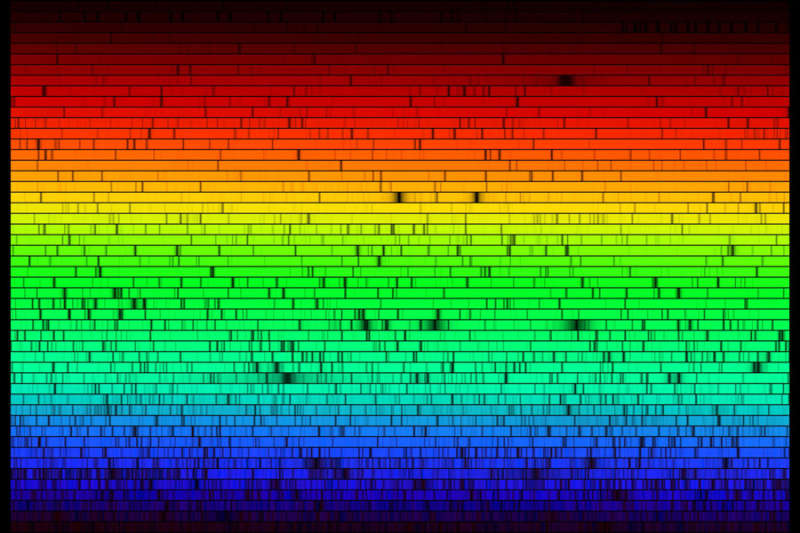
|
Explanation: It is still not known why the Sun's light is missing some colors. Shown above are all the visible colors of the Sun, produced by passing the Sun's light through a prism-like device. The above spectrum was created at the McMath-Pierce Solar Observatory and shows, first off, that although our yellow-appearing Sun emits light of nearly every color, it does indeed appear brightest in yellow-green light. The dark patches in the above spectrum arise from gas at or above the Sun's surface absorbing sunlight emitted below. Since different types of gas absorb different colors of light, it is possible to determine what gasses compose the Sun. Helium, for example, was first discovered in 1870 on a solar spectrum and only later found here on Earth. Today, the majority of spectral absorption lines have been identified - but not all.
|
January February March April May June July August September October November December |
| ||||||||||||||||||||||||||||||||||||||||||||||||
NASA Web Site Statements, Warnings, and Disclaimers
NASA Official: Jay Norris. Specific rights apply.
A service of: LHEA at NASA / GSFC
& Michigan Tech. U.
Based on Astronomy Picture
Of the Day
Publications with keywords: Sun
Publications with words: Sun
See also:
- APOD: 2026 February 11 Á A Year of Sunspots
- APOD: 2026 February 8 Á Active Sunspot Region 4366 Crosses the Sun
- APOD: 2025 December 7 Á The Sun and Its Missing Colors
- APOD: 2025 May 21 Á International Space Station Crosses the Sun
- APOD: 2025 March 16 Á Venus and the Triply Ultraviolet Sun
- APOD: 2024 September 2 Á A Triangular Prominence Hovers Over the Sun
- APOD: 2024 August 18 Á A Solar Prominence Eruption from SDO
